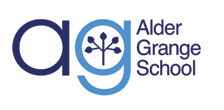The curriculum intent within Social and Religious Studies aims to ensure that each student is able to understand key religious, political, economic, and societal concepts, and how these different factors relate to and interact with each other. Students cannot gain this understanding passively through a broad survey of topics and or by receiving knowledge from authoritative sources. Students must build deep understandings and create their own knowledge through investigations into interesting, open-ended questions, debating and discussing contemporary issues, and developing and supporting their own hypotheses, solutions, and conclusions.
Social and Religious Studies at Alder Grange offers students the opportunities to build upon those understandings and knowledge. It draws on topics from all disciplines within social and religious studies, such as sociology, psychology, law and the study of religion, philosophy and ethics. Uniting these disciplines is their focus on human activities, behaviours, and interactions with both other humans and their environments.
While Social and Religious Studies draws on topics from many different disciplines, the proposed curriculum places greater emphasis on developing disciplinary thinking skills through six major thinking concepts: significance, evidence, continuity and change, cause and consequence, perspective, and ethical judgment.
Students can apply these concepts in today’s world of easy access to information about virtually any topic from sources around the globe. This access to information of uncertain quality and accuracy makes it more important than ever to teach students the skills needed to gather, assess, analyse, and synthesize information and ideas from multiple sources. Once students have gathered and analysed information, they will use it to solve problems, make decisions, and communicate their ideas effectively.
Through the Social and Religious Studies curriculum, students will have opportunities to explore and better understand their own identity, perspectives, and values as well as develop the competencies that encourage active, informed citizenship. They will develop the ability to think critically, consider different perspectives and ideas with an open mind, and disagree respectfully with those who have different opinions or points of view. They will be empowered to stay informed about public policy and take action on issues important to them.

